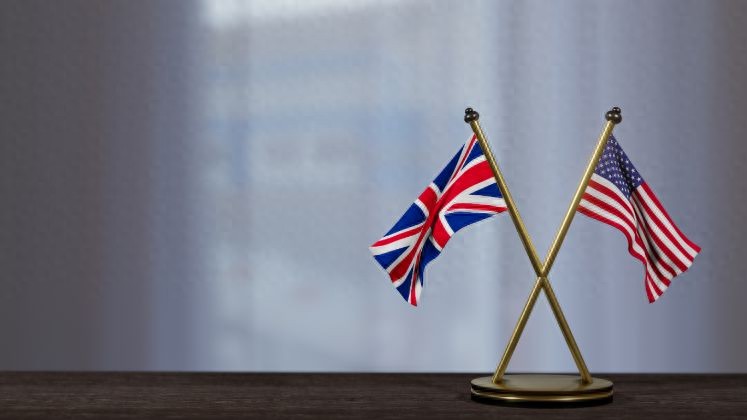TMTPOST -- U.S. President Donald Trump on Tuesday hinted he is open to concessions to Britain to facilitate a trade agreement while the 10 Downing Street was reported to shelf its plan to remove all steel tariffs imposed by the Trump administration.

Credit:London School of Economics and Political Science
Trump told reporters at the White House that the British government wants to “refine” the bilateral trade deal and he didn’t mind further negotiation for such adjustment. "They want to see if they can refine the trade deal a little bit,” Trump said as he is leaving for London. “We’ve made a deal, and it’s a great deal, and I’m into helping them.”
Trump touted his tariffs, claiming the U.S. government is collecting “trillions of dollars” from tariff revenue. Nevertheless, Trump didn’t rule out adjustments on trade deal that could affect tariffs on imports from Britain. “They’d like to see if they could get a little better deal. So we’ll talk to them,” he said.
Trump made the remarks ahead of his unprecedented trip to Britain, which made him the first U.S. President to get a second state visit to the country. Trump is scheduled to visit Britain between September 17 and 19 when he will be hosted by King Charles III and Queen Camilla at Windsor Castle, Buckingam Palace said Monday. King Charles III will host Trump at Windsor Castle on Wednesday before talks the next day with Prime Minister Keir Starmer at Chequers, the British leader’s rural retreat.
Reports on Tuesday suggested Britain decided to drop its efforts to push more tariff cuts on top of a trade agreement framework reached with the Trump administration. A proposed deal to eliminate tariffs on British steel exports to the US has been put on hold indefinitely, BBC reported. The Guardian echoed, stating that the deal to lower U.S. steel and aluminum tariffs to zero has been shelved on the eve of Trump’s state visit.
It was reported that the deal would have secured zero tariffs on just a small quota of steel British exports, extending uncertainty for the industry. Instead, British ministers are now reportedly seeking to agree a permanent “guarantee” that U.S. tariffs on British steel will not go above 25%. That move, if materialized,still maintains Britain’s comparative advantage over other countries facing the 50% steel tariffs.
Trump and Starmer on June 16 announced they had finalized a trade deal, which reduced tariffs on car and aerospace imports to the U.S., though two nations failed to agree on duties on steel and aluminum.
According to the agreement shared by the White House in June, the U.S. will create an annual quota of 100,000 vehicle imports from Britain, and imported cars within the quota will face a 10% tariff, down from 25%. The two countries committed to "strengthen aerospace and aircraft manufacturing supply chains" by establishing tariff-free trade for certain aerospace products.
But the agreement suggested the two allies had to hold further talks on steel and aluminum tariffs. The U.S. Commerce Secretary Howard Lutnick will design and establish a tariff-rate quota for aluminum and steel articles and their derivative products of Britain that can enter the United States without being subject to the 25% Section 232 tariffs. If Britain meets certain requirements, the U.S. will create a "a quota at most-favoured-nation rates for steel and aluminium articles" imported from Britain.
The British government on June 16 said the plan was still for “0% tariffs on core steel products as agreed.” BBC on Tuesday cited senior government sources that there “remains a path to zero”.






